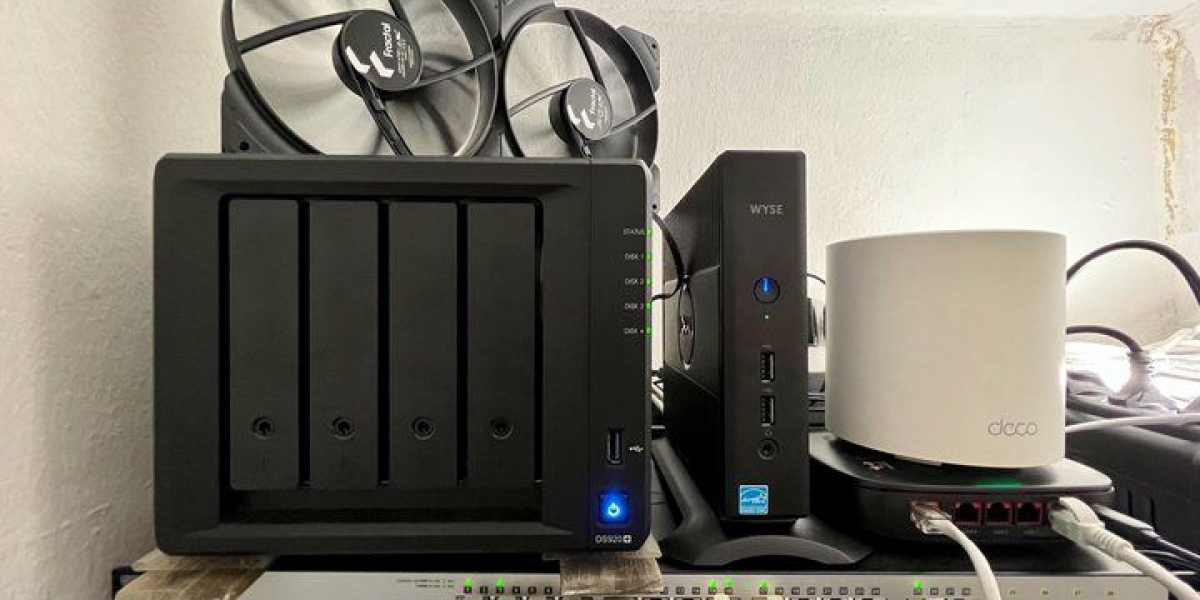Synology NAS (NAS) systems have revolutionized how individuals and businesses manage and store data. Synology, a leading brand in the NAS market, is renowned for its high-quality, reliable, and feature-packed devices. This article explores what Synology NAS is, its features, benefits, and how to choose the right model for your needs.
1. What is Synology NAS?
Synology NAS is a brand of network-attached storage devices designed to provide centralized data storage, backup, file sharing, and media management over a network. Unlike traditional hard drives or external storage devices, NAS systems connect to your local network, allowing multiple users or devices to access data simultaneously.
Synology NAS devices come in various models with different features, from basic home storage solutions to powerful enterprise-level systems. These devices run on Synology’s proprietary DiskStation Manager (DSM) operating system, which provides an intuitive interface for managing your files, apps, and network.
2. Key Features of Synology NAS
a. Centralized Data Storage
One of the most notable features of Synology NAS is its ability to store and manage all your data in one centralized location. Files, photos, videos, and documents can be accessed from any device connected to the network, including computers, smartphones, and tablets.
b. Backup and Data Redundancy
Synology NAS offers robust backup options, including automated backups, external device support, and cloud backup services. Most models support RAID configurations, which offer data redundancy by duplicating information across multiple drives. This ensures your data remains safe even if one hard drive fails.
c. File Sharing and Collaboration
Synology NAS enables file sharing across different platforms and devices. Whether you use Windows, macOS, or Linux, Synology NAS supports cross-platform file sharing with ease. It also allows for file synchronization across multiple devices, making it a great tool for collaborative work environments.
d. Media Server and Streaming
Many Synology NAS models come with built-in media server functionality. With apps like Plex, users can stream media content such as movies, music, and photos to compatible devices like smart TVs, smartphones, and media players.
e. Remote Access and Mobile Apps
Synology NAS allows users to access files remotely using Synology's QuickConnect feature, which connects the NAS to the internet securely. Additionally, Synology provides mobile apps for iOS and Android, enabling users to manage and access files from anywhere in the world.
f. Surveillance and Security
Synology NAS models often come with surveillance capabilities. They support IP cameras, offering users a centralized hub for managing security footage. This makes it an ideal solution for home security or business surveillance.
3. Benefits of Synology NAS
a. Easy Data Management
Synology NAS provides a user-friendly interface through DSM, making it simple to set up and manage your storage. You don’t need to be an IT expert to configure and operate a Synology NAS.
b. Scalability and Flexibility
Synology NAS devices are highly scalable, allowing you to add more storage as your needs grow. You can easily upgrade your drives, add more bays, or integrate with additional Synology devices to expand your storage capacity without needing to replace your existing system.
c. Cost-Effective Backup Solution
Synology NAS offers a more affordable backup solution compared to traditional cloud services or external hard drives. By having your own NAS system, you avoid subscription fees for cloud services and have full control over your data.
d. Enhanced Security
Synology NAS provides a suite of security features, such as encrypted file sharing, advanced firewall settings, and automatic updates to protect against vulnerabilities. Users can also set up user permissions to control who can access specific data, making it ideal for businesses that need to secure sensitive information.
e. Integrated Apps and Services
Synology NAS comes with a variety of built-in applications for business and personal use, including productivity tools, email servers, web hosting, and more. The flexibility of Synology's DSM means you can install additional third-party apps or services to enhance your NAS system further.
4. How to Choose the Right Synology NAS
When selecting a Synology NAS, there are several factors to consider based on your specific needs:
a. Number of Bays
The number of drive bays determines how many hard drives the NAS can support. A 2-bay NAS is suitable for home use or small offices, while a 4-bay or higher model is ideal for businesses or users who need large storage capacities and redundancy.
b. Storage Capacity
The capacity of a NAS depends on the size of the drives you install. Choose a NAS with enough bays to accommodate your current and future storage needs. You can opt for hard drives with larger capacities to avoid running out of space quickly.
c. Performance Requirements
Consider the type of work you'll be doing with your NAS. For general file storage and media management, a basic Synology NAS with a lower-end processor will suffice. However, for more demanding applications like video editing or running virtual machines, choose a NAS with a more powerful processor and ample RAM.
d. Connectivity and Expansion
Look for models with multiple Gigabit Ethernet ports or even 10GbE support if you need faster data transfer speeds. Additionally, consider models that offer USB or eSATA ports for connecting external drives or expanding storage capacity.
e. Budget
Synology NAS devices come in a wide price range, from affordable home models to high-end enterprise solutions. Set a budget based on your needs and choose a model that provides the best balance of performance, features, and price.
5. Popular Synology NAS Models
a. Synology DS220+
A great option for home users or small businesses, the DS220+ is a 2-bay NAS with a powerful processor and fast performance, supporting various apps and media streaming services.
b. Synology DS920+
A 4-bay NAS that offers more storage capacity and power, ideal for small businesses or users who need higher data throughput and expanded storage.
c. Synology DS1618+
A 6-bay NAS with excellent scalability and performance, making it suitable for growing businesses or users requiring large-scale data storage and backup.
d. Synology RackStation RS1219+
Designed for enterprise environments, this rack-mounted model offers robust performance, high scalability, and advanced business features.
6. Conclusion
Synology NAS devices are among the best in the industry for personal and business storage solutions. With their user-friendly interface, powerful features, and high scalability, they are perfect for those looking to securely store and manage their data. By choosing the right Synology NAS model based on your storage needs and performance requirements, you can enjoy a reliable, efficient, and cost-effective data management solution.








